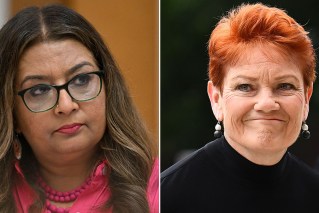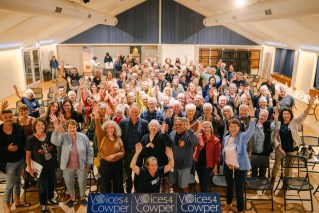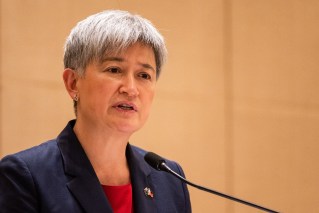Three decisions that led to the Voice losing volume

Today is the last full day of campaigning for the Indigenous Voice to Parliament referendum.
It has been 507 days since Prime Minister Anthony Albanese opened his election-night victory, promising to implement the Uluru Statement from the Heart “in full”.
In that week, some 79 per cent of voters supported the idea, according to an SEC Newgate poll that did not allow for undecideds.
On the home strait, an average of polls published this week put the number of Australians voting ‘yes’ at just over 41 per cent.
What went wrong? Here are three moments that might have been decisive.
Election night
The Voice proposal had been around for five years before Albanese, a victorious prime minister, placed it front and centre of national politics.
Concerns were raised at the top of the Yes 23 campaign about putting the Voice at the forefront of national politics for so long.
Countries such as Ireland have seen referendum proposals come back from slumps in the polls to pass. But in Australia, support for change generally wears down over a referendum campaign.
“[The Voice has followed the] same pattern of massive decline seen [even faster] in some previous referendums especially 1951 and 1988,” concluded polling expert Kevin Bonham.
Applause for Albo
Albanese’s starring role may have accentuated the usual effects of political gravity.
This March, the PM was overcome with tears as he announced the final wording of the referendum proposal being put to the public tomorrow.
He shared the stage with leading Indigenous figures.
But it was Albanese who walked out first to a hall of Labor advisers who delivered a thunderous standing ovation.
It’s hubris, in retrospect.
But it underscores the campaign’s second big problem, one that exacerbated its first.
Albanese’s starring role meant the Voice was exposed to far greater scrutiny, and for longer, than was politically helpful.
But the Voice was also playing a leading role for Albanese.
The PM’s progressive agenda was almost entirely riding on the Voice, University of Queensland Economics Professor John Quiggin warned in March.
Shaq
The most awkward moment of the campaign came with the Prime Minister’s appearance alongside 15-time NBA all-star Shaquille O’Neal.
“Shaq has agreed to do some vids,” Albanese said.
One year on, it became clear that O’Neal would not do any vids.
But this moment of peak media relevance for the Voice last August is as revealing in retrospect as it was comical at the time.
This year’s referendum might have seen dubious arguments for the No case rolled out at unprecedented speed and volume on social media.
But they have never been in short supply.
A scare campaign and warnings about rising food price defeated a 1937 referendum to give the Commonwealth the power to regulate plane flights.
The same cannot be said for the Yes case.
On Thursday, Albanese described the Voice for the umpteenth time as a “modest and gracious offer from Indigenous Australians”.
The arguments to support modest proposals look very shopworn by the end of a long campaign.
A year before polling day, the Yes campaign would never live up to its own hype.







